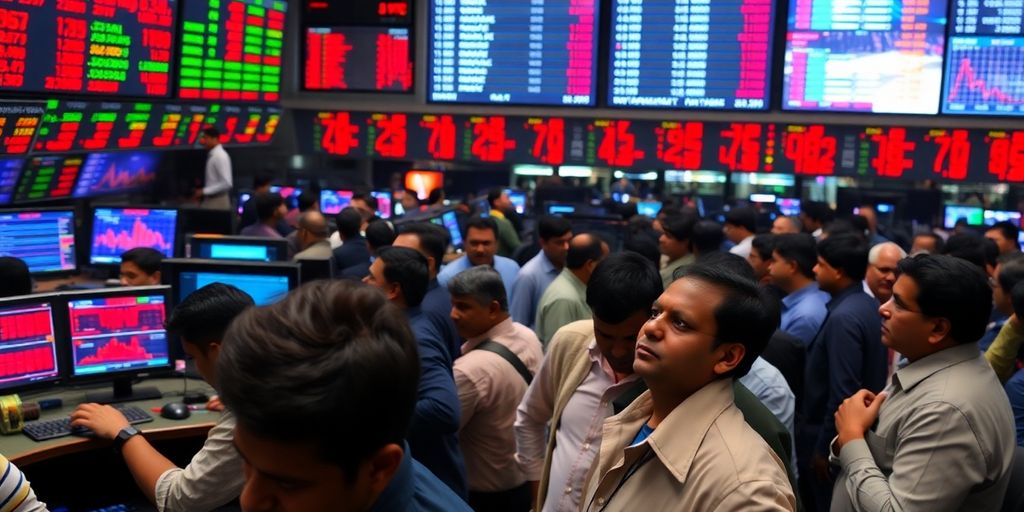India's stock market is experiencing its longest monthly losing streak in over 23 years, with significant outflows from foreign investors and disappointing corporate earnings contributing to the downturn. The Nifty 50 and Sensex indices have seen substantial declines since reaching record highs in September 2024, raising concerns about the future of the Indian equity market.
Key Takeaways
- Indian stocks are on a four-month losing streak, the worst in over two decades.
- Foreign investors have withdrawn approximately $29 billion from Indian equities since October 2024.
- The Nifty 50 and Sensex have dropped around 12.6% and 11.7%, respectively, from their peak values.
- Economic uncertainty and high inflation are impacting corporate earnings, leading to a decline in investor confidence.
Overview Of The Decline
The Indian stock market, which had previously enjoyed a robust performance, is now facing a significant downturn. The Nifty 50 and Sensex indices have lost about 3% each in January alone, marking a continuation of a downward trend that began in October 2024. This decline has been attributed to several factors, including:
- Weak Corporate Earnings: Approximately 60% of Nifty 50 companies reported earnings that either met or fell short of market expectations, the worst performance since March 2020.
- Foreign Outflows: Foreign portfolio investors (FPIs) have pulled out a staggering $29 billion from Indian stocks, with $8.3 billion withdrawn in January 2025 alone.
- Economic Uncertainty: High inflation and rising interest rates have contributed to a slowdown in economic growth, further dampening investor sentiment.
Impact Of Foreign Investment
The exodus of foreign investors has had a profound impact on the Indian stock market. The following points highlight the situation:
- Record Outflows: The $29 billion pulled from Indian equities is the highest in any six-month period, indicating a significant shift in investor confidence.
- Comparative Performance: In contrast, China's stock market has seen a resurgence, with the Hang Seng Index rising by 36% since late September 2024, attracting investors seeking better returns.
- Valuation Concerns: Despite the selloff, India's BSE Sensex remains priced at 20 times its projected earnings, compared to just 7 times for the Hang Seng Index, suggesting that Indian stocks may still be overvalued.
Future Outlook
While the current situation appears bleak, some analysts remain optimistic about India's long-term economic prospects. They argue that:
- Strong Economic Fundamentals: India possesses a robust economic backdrop with various growth drivers that could support a market recovery.
- Potential for Recovery: Analysts from firms like Morgan Stanley suggest that foreign investment may return in the second half of 2025, contingent on improvements in corporate earnings and economic stability.
Conclusion
The Indian stock market is at a critical juncture, facing its longest monthly losing streak in over two decades. With foreign investors pulling out significant capital and economic uncertainties looming, the future of Indian equities remains uncertain. However, the potential for recovery exists, provided that corporate earnings improve and investor confidence is restored. As the market navigates these challenges, stakeholders will be closely monitoring developments in both domestic and global economic conditions.
Sources







































































































